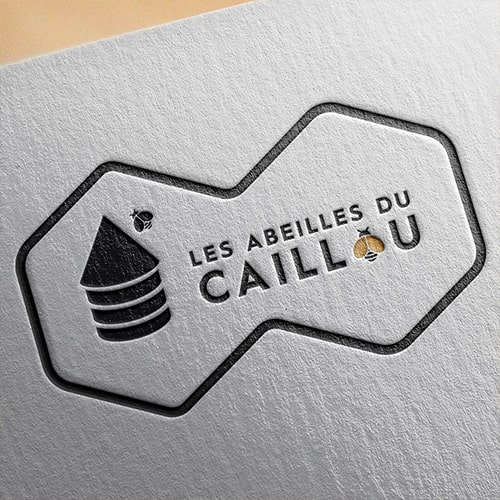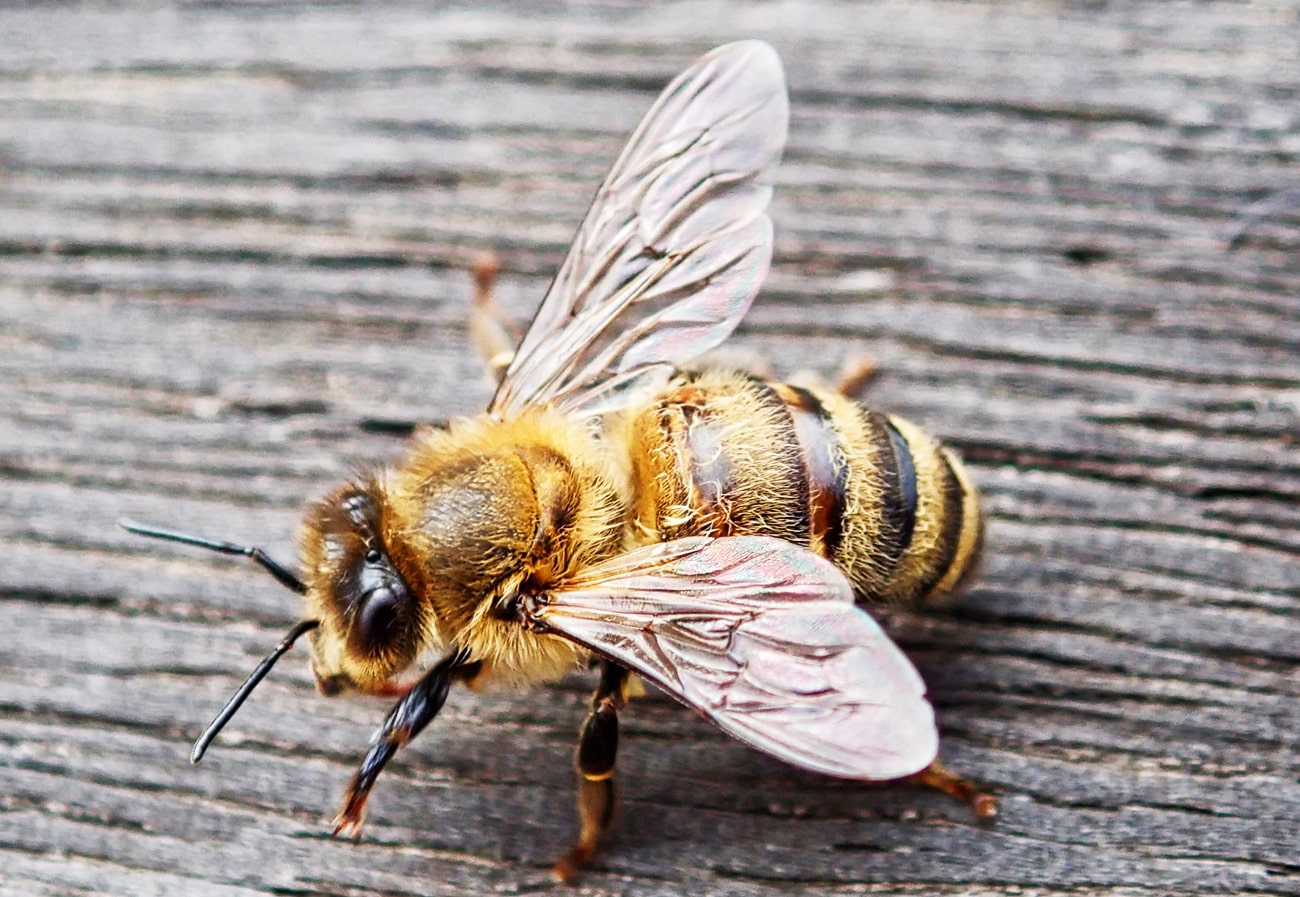
The Hôtel du Centre sponsors honey from Les Abeilles du Caillou
"The Rock is a paradise for bees, help us make it a sanctuary.": here is the eloquent message broadcasted by Les Abeilles du Caillou, to which the Hôtel du Centre decided a few months ago to reply with a big yes. The aim is to highlight the privileged link that each honey pot symbolises between producer and consumer.
In the discovery of Les Abeilles du Caillou
"Les Abeilles du Caillou" (The Rock’s Bees) was created in 2018 with the wonderful project to support local honey production, contributing to the maintenance of New Caledonian biodiversity by pollinating the plants that live there, but also by promoting employment within the Territory’s beekeeping sector.
It is in this capacity that this company proposes, to those who wish to do so, to be involved in the sponsorship of hives each year.
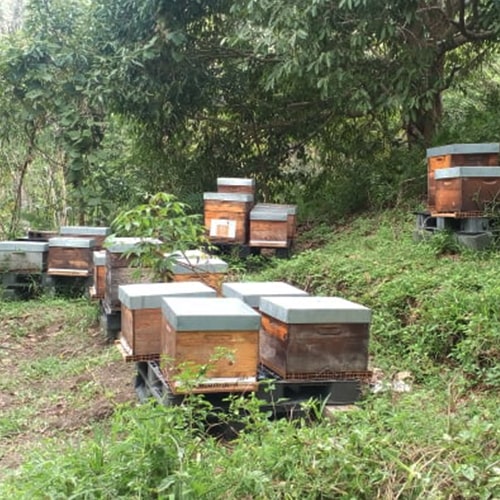
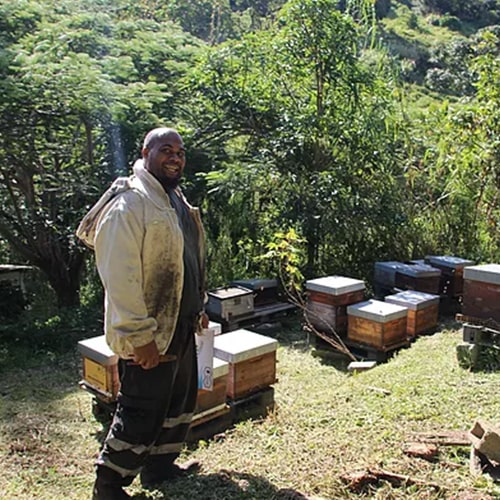
This is a tangible action, both for the protection of bees, through the creation of new colonies whose health is closely monitored, and for the development of self-sufficiency of New Caledonia in honey production.
In practice, your funding is granted to Les Abeilles du Caillou, in return for which you select, among the beekeepers partners of the structure, the one to which you want to entrust the harvest of honey that your generously sponsored bees will have made for you.
What is the role of the Hôtel du Centre?
"The Rock is a paradise for bees, help us make it a sanctuary.": here is the eloquent message broadcasted by Les Abeilles du Caillou, to which the Hôtel du Centre decided a few months ago to reply with a big yes.
By sponsoring a hive, the hotel demonstrates its interest and willingness to invest in the protection of the environment, as well as in the promotion of New Caledonian crafts.
The aim is to highlight the privileged link that each honey pot symbolises between producer and consumer. So thank you to Chiéra and his apiary in Bourail!
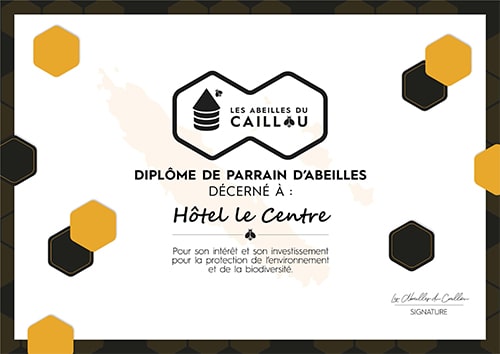
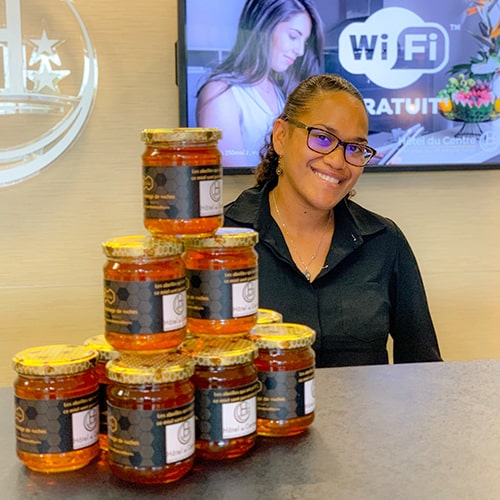
Like every other participant in the project, the Noumea hotel is awarded its "bee sponsor diploma" and receives its annual batch of about 50 honey jars, specially stamped with its corporate logo.
It is then during a breakfast or brunch at La Pergola that the restaurant’s guests can enjoy more than just honey…
What are the bees?
Precious and endearing creatures of our ecosystem that are bees, these little treasures of nature contain mysteries as well. Zoom in on the honey bee, one of the social bee species.
To believe the hum near the hive, it is obvious that it is not idle... It must be said that with an average of 50,000 bees, things have to run like a Swiss watch!
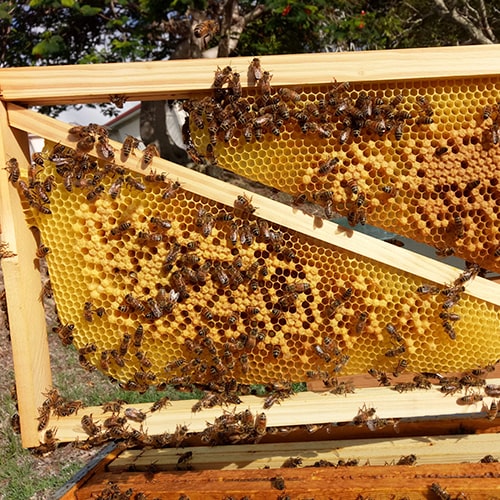
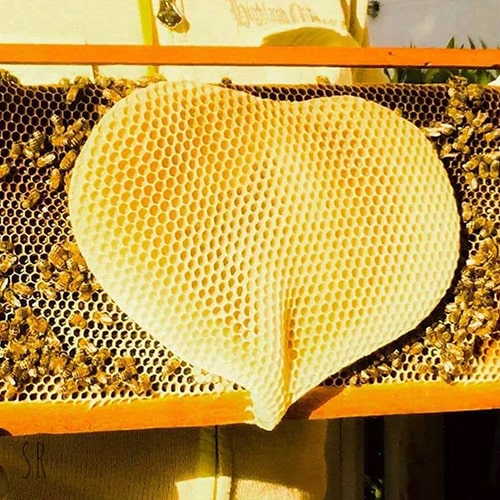
At the head of the colony stands the queen, recognisable by her larger size and capable of laying up to 2,000 eggs a day.
Under her directives, ensured by the secretion of pheromones, we find a thousand males (or drones) and a few tens of thousands of workers, which, depending upon their age, successively exercise all the "trades" of the hive during their live: nurse, cleaner, ventilator, builder, steward, sentinel and finally forager, dedicated to many journeys in search of the very valued nectar…
Did you know?
- First appearance: 100 million years ago (based on a bee fossil found in amber)
- Beginnings of beekeeping: in the days of the Pharaohs of ancient Egypt (from 3000 BC)
- Number of species to date: more than 20,000 worldwide (85% of which are solitary)
- Longevity of the mellific species in warm climate: 4-5 years for a queen, 38 days for workers, 22 days for males
- The forager in a few records: radius of movement = 0.6 to 1.6 miles around the hive; cruising speed in flight = 15 mph; rhythm of prospecting = visit of 300 flowers an hour
How to bring your stone to the building?
The idea for you too of getting involved, in a commendable and 100% local project motivates you? In turn, whether you are a company or an individual, support Les Abeilles du Caillou by sponsoring one or several hives.
And while your loved ones are working tirelessly, follow the evolution of the life of their hive online throughout the year. Also meet your local beekeeper if you wish, it will be an opportunity to learn more about the fascinating world of bees!
